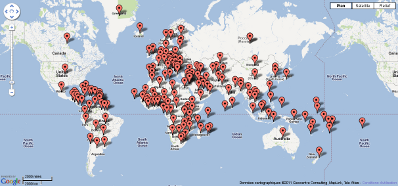
Sound archives of the CNRS - Musée de l'Homme
These sound archives gather commercial and field recordings of music and oral traditions from around the world, from 1900 to the present. Consisting of diverse types of media (wax cylinders, 78 rpm, vinyl records, magnetic tapes, audio CDs, born digital records, vidéo), these archives are among the most important in Europe in terms of quality, quantity and diversity.
the Center for Research in Ethnomusicology (CREM) manages and disseminates this this constantly growing scientific heritage. The deposites made between 1931 and 2009 at the musée de l'Homme are in co-ownership with the Muséum National d'Histoire Naturelle, under the title «Sound Archives of the Musée de l'Homme»; those deposited after that date now depend on the CNRS.
For a historical presentation of the collection, see the Resource center page of the LESC and the article of Aude Julien Da Cruz Lima` <https://journals.openedition.org/afas/4032>_ published in the Bulletin de l’AFAS.
News
2019 : the CNRS awards our team the collective crystal for this innovative project.
The archives are involved in the European sound portal (2014-2017): Europeana Sounds and
Display audio player options are developed by the DIADEMS program and they available with a user account.
Contents

Managed by the Center for Research in Ethnomusicology (CREM), these archives index:
Today, about 27,000 recordings are available for listening on free access. The others are only available with an access code. To obtain one, write to crem.lesc (at) cnrs.fr, explaining the reasons for your request. The archives database is also available on computer stations at the CREM, at the Eric de Dampierre documentary resources center, at the Media Library of the Musée du Quai Branly and at the Library of the Muséum national d’Histoire naturelle.
Organization of the catalogue
The database is organized on 4 hierarchical levels of description: Archives Series (Fonds) > Corpus > Collection > Item. The main level of description is ‘Collection’. Each gathers a relevant ensemble of sound items corresponding to recordings collected within one research fieldwork or to a published record. Some collections are assembled together in corpuses and archive groups linked to their collectors.
The number of recordings available online on the platform is constantly increasing. They are indicated by a green mark. The platform’s users fill descriptive forms collaboratively and gradually : researchers, students, archivists working together. The CREM welcomes all collaborations aiming to enrich and enhance this valued musical patrimony. You can write to us at crem.lesc (at) cnrs.fr.

 Geo Navigator
Geo Navigator
 Partners
Partners






 Musical selection
Musical selection